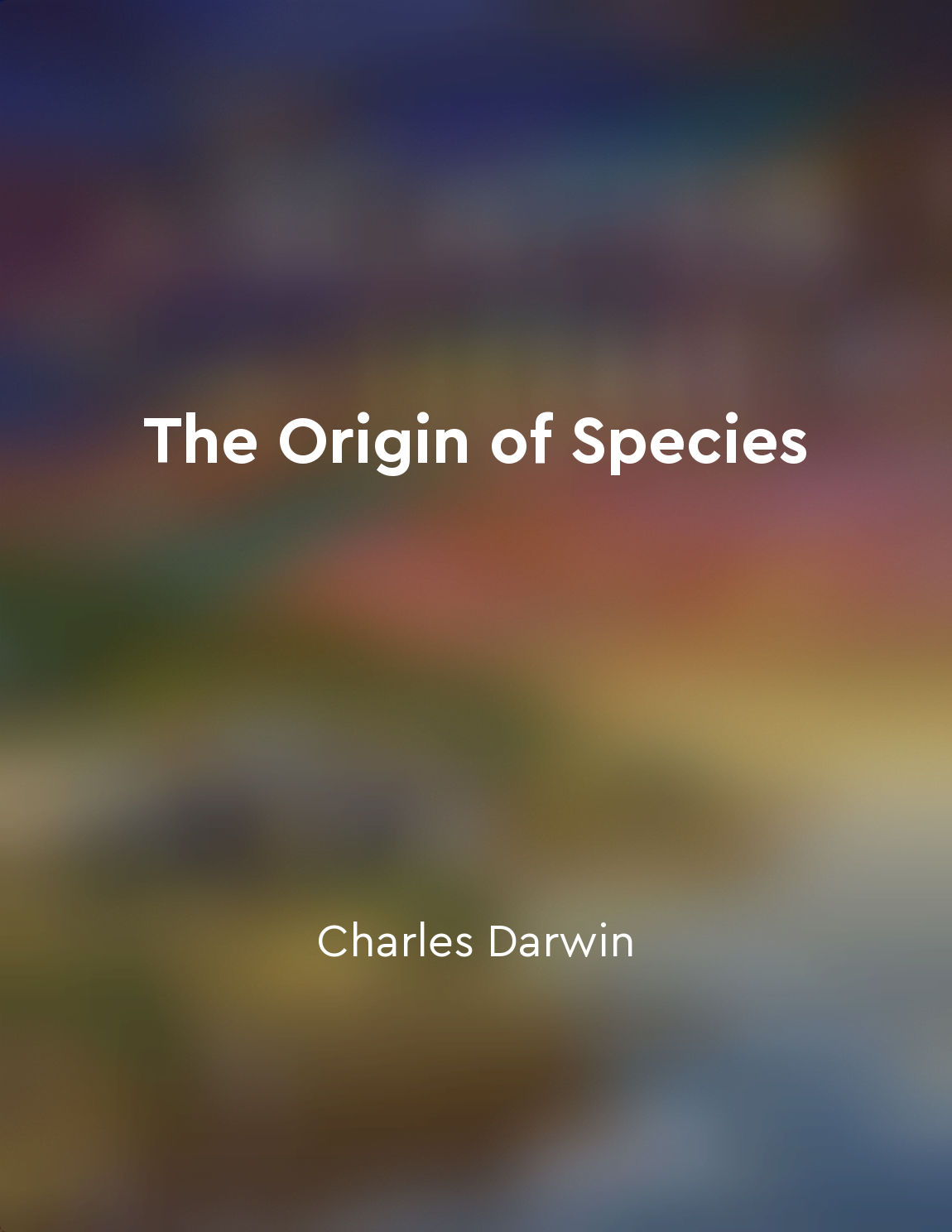The human mind is a product of natural selection from "summary" of Darwin's Dangerous Idea by Daniel C. Dennett
The human mind, that extraordinary tool of thought and imagination, is not a divine gift or a mysterious force bestowed upon us by some higher power. It is, in fact, the result of a long and complex process of natural selection, working over millions of years to shape and refine the cognitive abilities of our species. When Charles Darwin first proposed his theory of evolution by natural selection, he set in motion a revolution in our understanding of the natural world. By showing how the diversity of life on Earth could be explained by the simple process of variation and selection, Darwin revealed the power of a mechanistic explanation for the complexity and diversity of living organisms. The implications of Darwin's theory extend far beyond the realm of biology, reaching into the very heart of our own existence as thinking beings. If the human mind is a product of natural selection, then our thoughts, beliefs, and emotions are not the product of some immaterial soul or divine spark, but the result of a long history of adaptation to the challenges of survival and reproduction. This idea challenges some of our most deeply held beliefs about ourselves and our place in the universe. It suggests that our minds are not fundamentally different from those of other animals, but are instead the result of a shared evolutionary heritage that stretches back to the origins of life itself. Far from diminishing the wonder and mystery of human consciousness, the idea that our minds are the product of natural selection only serves to deepen our appreciation for the incredible power of the blind forces of nature to shape and create forms of life that are capable of contemplating their own existence. In the light of Darwin's dangerous idea, we are forced to confront the fact that our minds are not the result of some grand design or cosmic plan, but the product of the relentless processes of nature, operating without purpose or direction. And yet, in this very fact lies the beauty and majesty of evolutionary theory, which allows us to see ourselves not as passive recipients of some predetermined fate, but as active participants in the ongoing drama of life on Earth.Similar Posts

Religious beliefs are often passed down through cultural tradition
Religious beliefs are often passed down through cultural tradition. People tend to inherit their religious beliefs from their p...

Natural selection acts on existing variations
Natural selection, as I have explained earlier, is the process by which certain traits become more common in a population over ...

The rise of nationalism has posed a threat to global cooperation
The current surge in nationalism poses a significant threat to global cooperation. Nationalism, the belief that one's own natio...
Mental exercises can boost brain function
In the hunt for ways to maintain and improve brain function, researchers have found that mental exercises can play a significan...
Remember to sleep enough for optimal brain function
Getting enough sleep is crucial for optimal brain function. Sleep plays a vital role in our cognitive abilities, affecting ever...
Our ancestors' behaviors shaped our psychology
The behaviors of our ancestors have played a crucial role in shaping our psychology. Across generations, our ancestors have pas...
Human creativity is driven by instinctual impulses
Human creativity is a remarkable aspect of our species, one that sets us apart from all others on this planet. It is the force ...
Humans rely on cultural norms for social behavior
One key aspect of human social behavior is the reliance on cultural norms. These norms are shared beliefs about how individuals...
